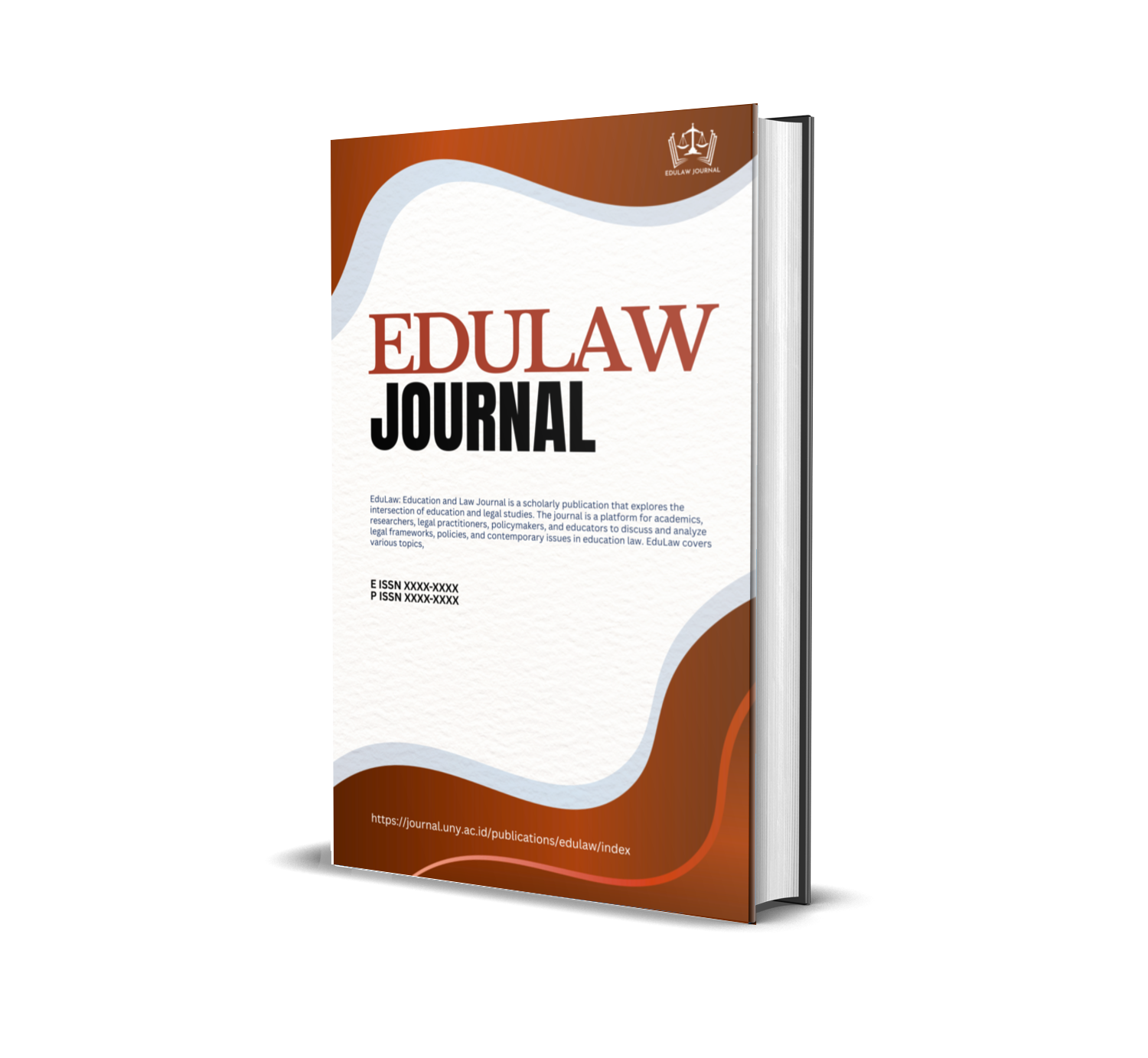The challenge of paradigm shift in formulating formal legality principles into formal and material principles in the revision of the criminal code
DOI:
https://doi.org/10.21831/edulaw.v1i1.2055Keywords:
new Criminal Code, paradigm shift, principle of formal legality, principle of material legalityAbstract
This research aims to examine the challenges of shifting the paradigm of the formulation of formal legality principles to formal and material in the reform of the Criminal Code which is still an academic debate by criminal law experts. Regarding this paradigm shift, some criminal law experts consider the change to be a form of expansion of the principle of legality, but others consider it as a setback. The method used is a normative or doctrinal legal method with a legislative and conceptual approach. Meanwhile, the data used is secondary data or literature data in the form of primary legal materials and secondary legal materials. This research found that the paradigm shift in the formulation of the principles of formal legality to formal and material in the provisions of Law Number 1 of 2023 regarding the Criminal Code is appropriate because it is a form of effort by the Indonesian nation to reorient and reform the criminal law in accordance with the socio-cultural values of the Indonesian people. Then to the challenges that will arise in the future regarding the complexity of cases that are closely related to the implementation of the principle of material legality in the new Criminal Code, each region can immediately codify the unwritten laws that are alive and applicable in its society into the form of Regional Regulations.
Downloads
References
Diantha, I. M. P. (2017). Metodologi penelitian hukum normatif dalam justifikasi teori hukum. Prenada Media Group.
Faisal. (2016). Membangun politik hukum asas legalitas dalam sistem hukum pidana Indonesia. Jurnal Hukum IUS QUIA IUSTUM, 21(1), 81–95.
Fernando, E. , & M. M. (2007). Menggapai hukum berkeadilan. Kompas.
Hasibuan, M. (2024). Perbandingan ketentuan asas legalitas dalam KUHP lama Undang-Undang Nomor 1 Tahun 1946 dan KUHP baru Undang-Undang Nomor 1 Tahun 2023. Jurnal Ilmiah Mahasiswa Fakultas Hukum Universitas Malikussaleh, 7(3).
Pandit, I. G. S. (2016). Konsep keadilan dalam persepsi bioetika administrasi publik. Public Inspiration: Jurnal Administrasi Publik, 1(1), 14–20.
Prastowo, R. B. B. (2006). Asas nonretroaktivitas dalam perubahan perundang-undangan pidana. Jurnal Hukum Pro Justitia, 24(2), 171–181.
Saifullah. (2018). Dinamika teori hukum: Sebuah pembacaan kritis paradigmatik. Pustaka Belajar.
Soekanto, S. , & T. S. B. (n.d.). Hukum Adat Indonesia (1st ed.). Rajawali.
Suartha, I. D. M. (2015). Pergeseran asas legalitas formal ke formal dan material dalam pembaharuan hukum pidana nasional. Yustisia: Jurnal Hukum, 4(1), 235–244.
Sumodihardjo, R. Tr. (1954). Hukum adat dan adat-kebiasaan. Widya Pustaka.
Tabiu Ramadhan dan Hiariej Eddy O.S. (2015). Pertentangan asas legalitas formil dan materiil dalam Rancangan Undang-Undang KUHP. Jurnal Penelitian Hukum, 2(1), 28–36.
Tahir, A. (2012). Menggali makna asas legalitas dan perkembangannya di Indonesia. Al-Mazahib: Jurnal Perbandingan Hukum, 1(2), 245–262.
Tarigan, E. K. , D. E. , A. D. S. , & S. B. D. (2024). Tinjauan yuridis perbandingan KUHP lama dan KUHP baru. Majalah Ilmiah Warta Dharmawangsa, 18(3), 590–604.
Widayati, L. S. (2011). Perluasan asas legalitas dalam RUU KUHP. Negara Hukum: Membangun Hukum Untuk Keadilan Dan Kesejahteraan, 2(2), 307–327.
Wijaksana, M. M. S. (2020). Perkembangan ajaran sifat melawan hukum dalam tindak pidana korupsi di Indonesia (Sebuah perspektif yuridis). . Jurnal Rechtsvinding Media Pembinaan Hukum Nasional.
Yunus, Y., Sarri, J., & Syahir, S. (2021). Hilangnya Sifat Melawan Hukum Pidana Materil Dalam Tindak Pidana Korupsi Pasca Pengembalian Seluruh Kerugian Keuangan Negara. Media Iuris, 4(2), 243. https://doi.org/10.20473/mi.v4i2.25457
Downloads
Published
How to Cite
Issue
Section
Citation Check
License
Copyright (c) 2025 Wahyuning Kiscahyani

This work is licensed under a Creative Commons Attribution-NonCommercial-ShareAlike 4.0 International License.
Authors who publish with this journal agree to the following terms:
- Authors retain copyright and grant the journal right of first publication with the work simultaneously licensed under a Creative Commons Attribution License that allows others to share the work with an acknowledgement of the work's authorship and initial publication in this journal.
- Authors are able to enter into separate, additional contractual arrangements for the non-exclusive distribution of the journal's published version of the work (e.g., post it to an institutional repository or publish it in a book), with an acknowledgement of its initial publication in this journal.
- Authors are permitted and encouraged to post their work online (e.g., in institutional repositories or on their website) prior to and during the submission process, as it can lead to productive exchanges, as well as earlier and greater citation of published work (See The Effect of Open Access).








